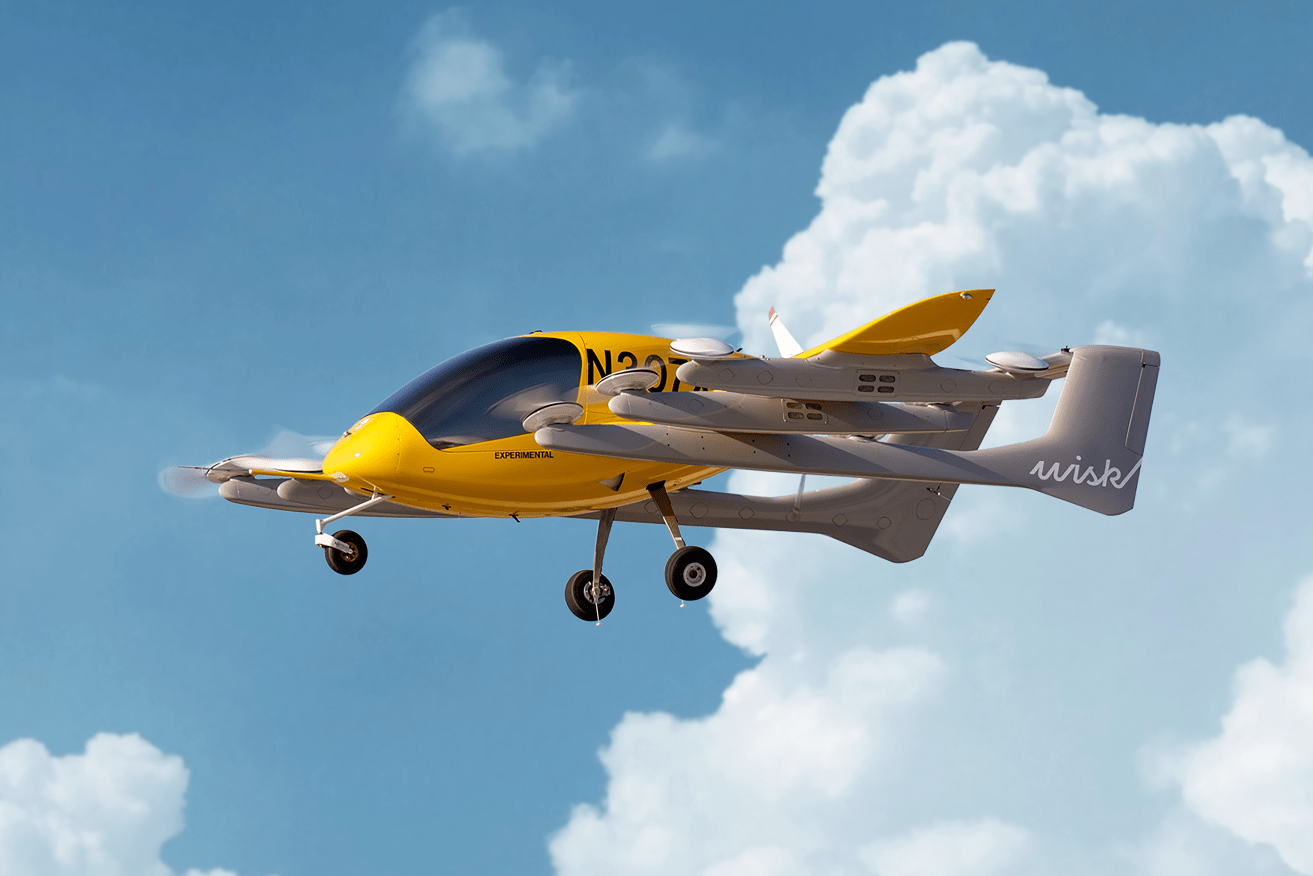Meet SEQ’s new congestion buster – why councils are taking a punt on flying taxis
A deal made by south-east Queensland councils to attract an electric self-flying taxi company to set up operations in the region has exposed them to a business attracting billions of dollars in new investment.


Wisk Aero has signed a memorandum of understanding the the Council of Mayors (SEQ) (Supplied image)
Wisk Aero is promising to introduce sustainable, autonomous electricity powered flight as a new means of getting around SEQ in time for the Brisbane 2032 Olympic Games.
Such a prospect has proved irresistible for the South East Queensland Council of Mayors, which has signed a memorandum of understanding with the company to help the service take off in SEQ.
“While there’s still plenty of work to do around regulation and safety, the prospect of having autonomous air taxis operating throughout our region and between venues during the Brisbane 2032 Games is really exciting,” Brisbane Lord Mayor and COMSEQ chair Adrian Schrinner said.
France has already announced a program to test electric air taxis and hopes to have the vehicles operating on two flight paths to ease congestion during the Paris 2024 Olympics.
Another company, Skyportz, announced last year it planned to open a base for electric air taxis at The Mill development in the Moreton Bay region.

An artists impression of what an air tax base could look like at the Australian Advanced Manufacturing Centre of Excellence. (Supplied image)
Described as one of the world’s most well funded advanced air mobility companies, San Franciso-based Wisk aims to have its autonomous electric vehicles making 14 million emission free journeys a year across 20 cities within the next decade.
The company won $US450 million in funding from Boeing this year to develop its technology and is involved in a study by the City of Long Beach, California, into the economic impact of advanced air mobility operations.
Wisk has also been showing off a model of its autonomous aircraft at the prestigious Farnborough Air Show in the UK this week.
The nascent future air mobility industry, which has about 500 participants, attracted $6.9 billion in capital funding last year, according to consultants McKinsey and Co.
While investment has subsided this year, McKinsey is optimistic about the industry’s future.
The industry is applying a portfolio approach, casting a wide net, and letting a broad range of companies pursue their own solutions.,” it said in a report on future air mobility released this week.
“Some will inevitably fail, and—as with the current blip in funding—that should not be taken as a signal of deeper problems.”
While details of the MoU are sketchy, It is clear Wisk sees it as a means for the company to better understand and clear the planning and regulatory hurdles it faces.
“The MOU will support engagement with the region’s councils on the introduction of the autonomous air mobility industry, including operators like Wisk, into south-east Queensland,” Schrinner said.
“Through a strong collaboration between councils and the industry, we can ensure they understand the needs of our communities and support a consistent and collaborative approach to planning and regulation.”
It has yet to nominate a date for when its aircraft will be commercially available.












